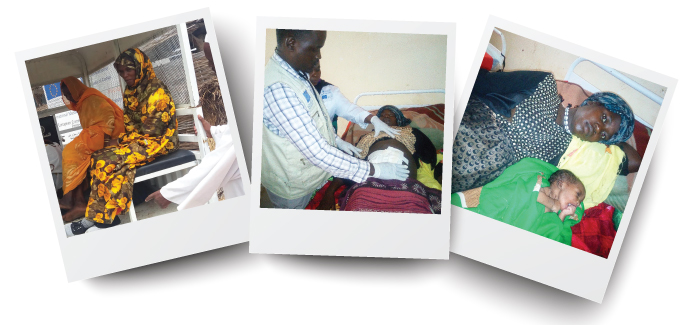

Seventeen-year-old Hawa had been in labor for three days, and she still hadn’t given birth.
Hawa is from Golo, a rural area located in Darfur—a region in western Sudan that is home to one of the world’s longest-running humanitarian crises.
Darfur has the highest levels of maternal mortality in Sudan, so the birthing process is far from safe for young mothers like Hawa. Faced with limited capacities to provide emergency obstetrics services such as caesarean sections, and an alarming shortage of skilled birth attendants, Hawa was at risk of becoming one of the many women around the world who die in childbirth every day from mostly preventable causes.
International Medical Corps is the only primary healthcare provider throughout much of the Darfur region, and a lifeline to rural communities such as Golo.
To alleviate an acute shortage of emergency obstetrics—a set of essential medical services for mothers and their babies—International Medical Corps set up an operating theater in Golo Hospital in 2018. Now, doctors can perform unplanned caesareans and other reproductive surgeries. Despite being integral to safe motherhood, these and similar services remain an out-of-reach luxury for most women living in Darfur.
After Hawa arrived at the hospital, a medical team diagnosed her as being in obstructed labor—a complication that occurs when the baby is physically blocked—and carried out an emergency caesarean section, saving her and the baby’s life.







